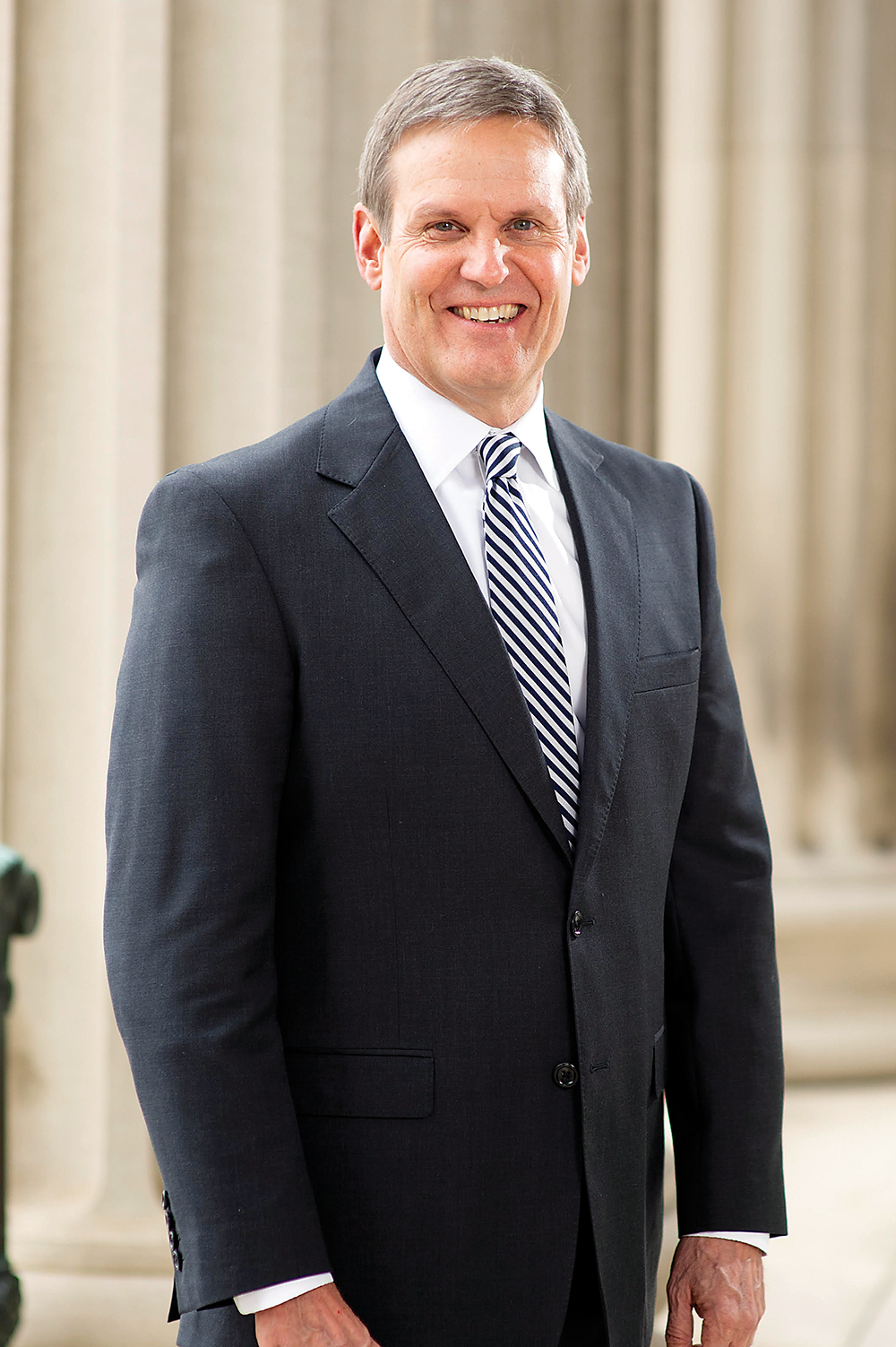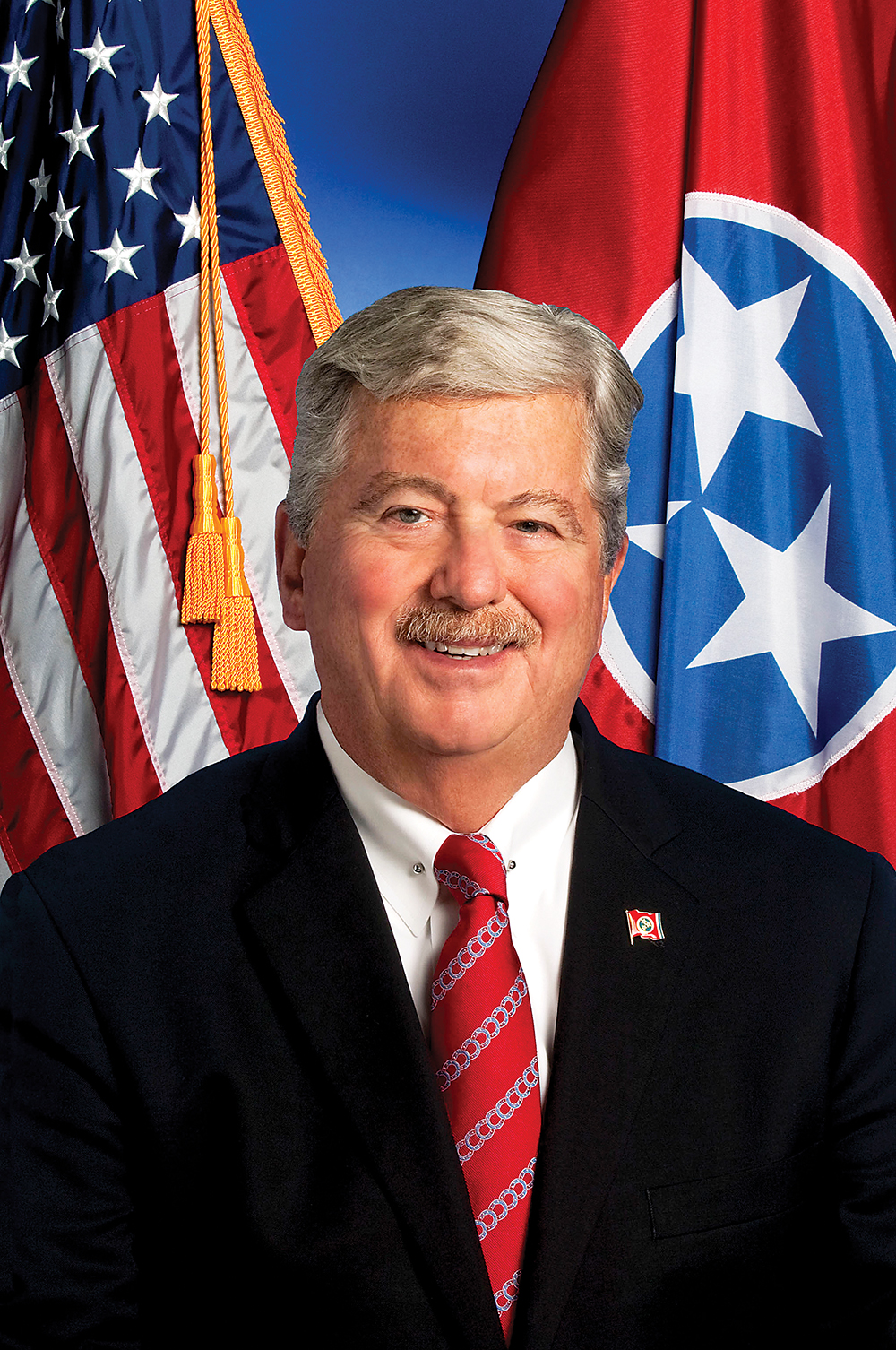Tennessee Republicans cannot stand the federal government telling them what to do — especially when a Democrat’s in the White House — but they do love telling Tennessee’s biggest cities what to do.
Republicans cry “overreach,” in general, when the feds “impose” rules that “overrule the will of the people of Tennessee.” (All of those quoted words came from just one statement on abortion from Tennessee Attorney General Jonathan Skrmetti, who yells “overreach!” the loudest.) But they call it “preemption” when they do it to Memphis and Nashville — their favorite targets — leaving big-city locals to bemoan that same overreach.
When punching up at the federal government, Tennessee conservatives send angry letters to the president lamenting rules they have to follow to get big “seductive” tax dollars. But they don’t often win much in this process.
When they punch down at cities, the power struggle really comes down to rural conservatives exerting whatever influence they have to temper (squash) the sometimes “woke” ideas of urban progressives. They have a lot of power to do this, as state law does, usually, preempt local law.
So, Republicans do what they want in the Tennessee General Assembly and say, “See you in court,” because cities don’t typically give up their authority without a legal fist fight. (This happens so much state Democrats say Republicans pass lawsuits, not laws.)
But cities lose these fights often. Some of that is thanks to the powerful state AG’s office, who gets in the ring for state conservatives. That office has even more punching power with a brand-new $2.25 million, 10-member unit. It force-feeds conservative priorities in Tennessee cities and blocks D.C.’s liberal agenda.
Here’s an example of this double-edged subversion: Skrmetti, the Republican AG, cried “overreach” when a 2022 USDA rule said LGTBQ kids had to have access to lunch at school. But when Memphis and Nashville tried to decriminalize cannabis in 2016, a state Republican said, “You just can’t have cities creating their own criminal code, willy-nilly.”
Same coin. Two sides. Yes, state law rules most times, but the premise of the argument is the same. State citizens and city locals know what’s best for them and pick their leaders accordingly. Then, an outsider who, maybe, doesn’t share their values, swoops in to make locals comply with theirs. It’s like, “Hi, you don’t know me but you’re doing it wrong and are going to do it my way.”
In this game, Memphis has been on the ropes at the legislature this year. State Republicans want to take away some of the power from the Shelby County district attorney. They want to remove a Memphis City Council decision on when Memphis Police Department (MPD) officers make traffic stops. They also wanted to dilute local control of the Memphis-Shelby County School (MSCS) board with members appointed by the governor. But they decided against it. Details on many of these and some from the past are below.
Meanwhile, some Republican lawmakers have looked up, wondering if they could really cut ties with the federal government. They took a serious, hard look at giving up $1 billion in federal education funding for state schools. They wanted to do it “the Tennessee way.” Left to guess what that meant, many concluded they hoped to eschew national discrimination protections for LGBTQ students.
This year, a state Republican hopes to establish state sovereignty. He wants to draw a clear line between state and fed powers and to install a committee to watch that line. It’s not a new idea, but it’s always had “don’t tread on me” vibes.
The road from Memphis City Hall, to the State Capitol, to Congress and the White House is littered with complaints (usually court papers) about political subversion. All the hollering and legal fights along the way have to leave voters wondering, who’s got the power?

District Attorney Power Battle
A legal battle over who has the power to decide on some death penalty cases has been waged since Republicans passed a bill here last year.
That bill stripped local control of post-conviction proceedings from local district attorneys and gave it to Skrmetti, the state AG. In Memphis, the bill seemed largely aimed at Shelby County District Attorney Steve Mulroy, with some concerned he may be lenient for those facing the death penalty.
“This sudden move appears to be a response to the choices of voters in both Davidson County and Shelby County, who elected prosecutors to support more restorative and less punitive policies,” Tennesseans for Alternatives to the Death Penalty said at the time.
Larry McKay, who received two death sentences for the murders of two store clerks in Shelby County in 1981, requested a court review of previously unexamined evidence in his case. Despite the new law, McKay’s attorney sought to disqualify Skremtti’s office from reviewing the case because he was not elected.
His attorney argued the new law infringes on the responsibilities of local district attorneys. The big changes made in the legislation also violated the state constitution, the attorney said.
Mulroy agreed.
“The newly enacted statute is an unconstitutional effort to divest and diminish the authority granted to Tennessee’s district attorneys general by the Tennessee Constitution,” Mulroy said at the time. “The new statute violates the voting rights of such voters because it strips material discretion from district attorneys, who are elected by the qualified voters of the judicial district.”
But state attorneys did not agree.
“The General Assembly was entitled to take that statuary power away from the district attorneys and give it to the Attorney General in capital cases,” reads the court document. “They have done just that and their mandate must be followed.”
But in July Shelby County Judge Paula Skahan ruled the Republican legislation did violate the state constitution. New arguments on the case were heard by the Tennessee Criminal Court of Appeals earlier this month. No ruling was issued as of press time. However, an appeal of that ruling seems inevitable, likely pushing the case to the Tennessee Supreme Court.
Pretextual Stops
State Republicans are actively trying to undermine a unanimous decision of the Memphis City Council to stop police from pulling over motorists for minor things like a broken taillight, a loose bumper, and more.
This council move came three months after MPD officers beat and killed Tyre Nichols, who was stopped for a minor traffic infraction. The local law is called the Driving Equality Act in Honor of Tyre Nichols.
Council members said police time could be better spent, that the stops expose more people to the criminal justice system, and, as in the Nichols’ case, could be dangerous. The stops also disproportionately affect Black people, who make up about 64 percent of Memphis’ population but receive 74 percent of its traffic tickets, according to Decarcerate Memphis.
The council’s decision made national headlines. But it found no favor with Republican lawmakers.
Rep. John Gillespie (R-Bartlett) introduced a controversial bill this year that would end that practice and reestablish state control over local decisions on criminal justice.
“We’re simply saying a state law that’s been on the books for decades is what we’re going by here,” Gillespie told Tennessee Lookout earlier this month. “And if there are people that have problems with what state law is, then maybe they should change state law instead of enacting local ordinances that are in conflict with state law.”
He initially cooled on the matter, promising to pause his bill for further review after Nichols’ parents spoke at a press conference.
“I am just appalled by what Republicans are trying to do in this state,” Nichols’ father, Rodney Wells, said at the event.
Gillespie promised Nichols’ family he’d hold the bill but surprised many earlier this month when he brought it to the House floor for a vote, which it won. Some said Gillespie acted in bad faith. State Rep. Justin Pearson (D-Memphis) said he straight-up lied to Nichols’ family and subverted local power to boot.
“You, as a person who lives in Shelby County, seek to undo the will of the people of Memphis and Shelby County,” Pearson said on the House floor. “The Wells family spoke with him briefly; he told them this bill wouldn’t come up until probably next Thursday.”
The Senate approved the bill last Thursday. It now heads to Gov. Lee for signature.

MSCS School Board
State Republicans want to control schools here, too.
Rep. Mark White (R-Memphis), chair of the House Education Committee, filed a bill earlier this year that would add six governor-appointed members (read: more Republican influence) to the MSCS board. When he filed the legislation, he said he was unimpressed with the slate of those vying for the district’s superintendent job and concerned about students falling behind state standards on reading and math.
“I’m very concerned about the district’s direction, and I just can’t sit back any longer,” White told Chalkbeat Tennessee. “I think we’re at a critical juncture.”
However, MSCS board chair Althea Greene said at the time that White’s proposal was unnecessary.
“We may have had some challenges, but more interference from the General Assembly is not warranted at this time,” she said. “We have to stop experimenting with our children.”
Since then, the MSCS board chose Marie Feagins as the district’s superintendent and she got to work early, before her contract was supposed to start. Also, White paused his bill earlier this month to give board members a chance to submit an improvement plan. White said the plan should show how they’ll improve on literacy, truancy, graduation rates, teacher recruitment, underutilized school buildings, and a backlog of building maintenance needs, among other things, according to Chalkbeat.
While it’s the newest move in state “overreach” into schools here, it’s hardly the first. State Republicans once seized dozens of schools in Memphis and Nashville as laboratories for what they called “Achievement School Districts.” After more than a decade, these schools only angered locals, showed abysmal student performance, and now seem to be on their way out.
Cannabis
For six weeks back in 2016, Memphis City Council members debated a move that would have decriminalized possession of small amounts of cannabis in the city.
Hundreds were (and are) arrested each year on simple possession charges, and most of those arrested were (and are) Black. Council members didn’t want cannabis legalization; they wanted to steer folks away from the criminal justice system. They hoped to keep them out of jail and avoid a criminal record, which could hurt their chances at housing, employment, and more.
The city council — even though some had reservations about it — said yes to this. So did the Nashville Metropolitan Council. State Republicans said no.
Upon their return to the Capitol in 2017, they got to work ensuring their control over local decisions on the matter. A bill to strip this control easily won support in the legislature and was signed by then-Gov. Bill Haslam, who said he acted on the will of state lawmakers.
“You just can’t have cities creating their own criminal code, willy-nilly,” Rep. William Lamberth (R-Cottontown), the bill’s House sponsor, told The Tennessean at the time.
Then-Tennessee Attorney General Herbert Slatery issued an opinion that said, basically, cities can’t make laws that preempt state law. With that, Memphis resumed regular enforcement of cannabis laws.
Ranked Choice Voting
In two elections — 2008 and 2018 — Memphians chose how they wanted to pick their politicians, but they never got a chance to use it. State Republicans said no.
Ranked Choice Voting (RCV) would have allowed voters here to rank candidates on a ballot, doing away with the need for run-off elections that always see lower voter turnout. It was new and different but voters here “decided, over and over again, to give it a try,” reads a Commercial Appeal op-ed from 2022 by Mark Luttrell, former Shelby County mayor, and Erika Sugarmon, now a Shelby County commissioner.
However, state Republicans then-Sen. Brian Kelsey (R-Germantown) and Rep. Nathan Vaughan (R-Collierville) filed a bill to upend the voters’ decision for good with a bill to end RCV in Tennessee. Kelsey said it was about voter clarity. Opponents said it was about more.
“If the bill passes, it will disrespect Memphis voters, make a mockery of local control,” Luttrell and Sugarmon said in the op-ed.
In the end, the state won. The bill passed and RCV was banned, with added support and sponsorship of Memphis Democrats Rep. Joe Towns Jr. and the late Rep. Barbara Cooper.
State Sovereignty
“So, you hoe in your little garden and stay out of our garden,” said Rep. Bud Hulsey (R-Kingsport).
He was explaining to the House Public Service Committee last year how the country’s founders designed the separation of powers between the state and the federal governments, how it was supposed to work, anyway.
But federal government agencies — not elected officials — issue rules pushed on to “we, the people,” he said. They tear families apart. They split marriages. They end lifelong friendships, he said. They bring bankruptcy and suicide. He gave no more details than that. But he was sick of it and said the bill he brought would fix it.
When some Republicans here aren’t busy in committee or court, rending control from local governments, they like to think about state sovereignty. They want to defend Tennessee from the feds, especially when a Democrat is in the White House. They want to know what the exact rules are and to tell D.C. “don’t tread on me.”
Since at least 1995, bills like these have been filed here and there in the state legislature. There’s a new one pending now. In them, “sovereignty” sometimes sounds like a preamble to “secession.”
Hulsey’s bill didn’t go that far. He really wanted to set out a way to nullify D.C. rules he didn’t like. Lee’s office was against it, though. Senate Republicans were, too. The idea failed to even get a review in the Republican-packed Senate State and Local Government Committee. Conservatives worried “nullification” could also nullify big federal tax dollars.
That 1995 bill demanded, “The federal government, as our agent, to cease and desist, effective immediately, mandates that are beyond the scope of its constitutionally delegated powers.” Another Republican sovereignty bill later would have voided the powers of any representative of the United Nations once they entered the state.
One in 2014 (that was signed by the governor) simply expressed the state’s sovereignty to set educational standards. A 2016 bill said the feds “seduce” states to go along with their new rules with federal funds they treat as grants, not as tax funds for the state. Another in 2013 would have formed a committee to see what financial and legal troubles could be in store for Tennessee if it scaled back or quit the “state’s participation in the various federal programs.”
Ten years later, this idea is back. The “Tennessee State Sovereignty Act of 2024” would form a 10-person committee to watch and see if any federal rule violates the Tennessee State Constitution. If it does, “it is the duty of both the residents of this state and the General Assembly to resist.”
Now, if that don’t say “don’t tread on me” …
In the Senate, the bill was deferred until near the end of session (usually meaning they’ll get to it if they can). A House review of the idea was slated for this week, after press time.
Education Funding
Sovereignty bills rarely go anywhere but in talking points for reelection campaigns.
However, last year high-ranking Republicans took state sovereignty a step beyond rattling a saber. They announced a bold plan to have a serious look at if and how Tennessee could cut ties with the feds and their $1 billion in education funding. If it did, Tennessee would have been the first state in history to decline such funds.
“We as a state can lead the nation once again in telling the federal government that they can keep their money and we’ll just do things the Tennessee way,” House Speaker Rep. Cameron Sexton said at an event in February last year.
He didn’t outline what the “Tennessee way” entailed, though he complained about testing mandates and strings attached to funding. Many said the big federal string Republicans wanted to cut was the one attached to Title IX mandates. Title IX prohibits discrimination based on sex in education programs and activities that get federal money. The Biden administration has promised an update to these that could strengthen protections for LGTBQ students.
Tennessee has passed more anti-LGBTQ laws than any other state, according to the Human Rights Campaign. The week of March 4th alone, 18 such bills were before state lawmakers and targeted diversity, equity, and inclusion programs; made it easier to ban books; and attempted to legalize discrimination based on sexual orientation or gender identity.
State Republicans have passed bills to mandate transgender students only play on sports teams that match their gender at birth. They have mandated which bathrooms trans people have to use (a decision struck down by a federal judge). They’ve allowed teachers to go unpunished if they refuse to use pronouns that students identify with. They’ve wanted certain books with LGBTQ themes banned at school. They’ve wanted LGBTQ, especially gender identity, issues banned from discussion in sex-ed classes. This list goes on and on.
However, the precise motive for looking into cutting those federal education dollars was never stated. Some said it was always good to review the relationship between nation and state. In the end, Republicans spent a lot of time and money to research the idea but set it aside. They took the federal money and the strings attached anyway. But taking it so seriously was maybe that “don’t tread on me snake” just shaking its rattle.
“Deep in my Soul”
Separation of powers is a doubled-edge sword. It’s that cartoon drawing of a big fish eating a small fish that is getting eaten by the even bigger fish. It’s a “layer cake” form of federalism.
Call it what you will, but it’s clear locals want to make their own decisions. For Hulsey, the Republican talking about who tends whose garden, the idea runs deep.
“I stood up on that House floor over there a few weeks ago and we raised our hand, and we swore to 7 million people in this state, we swore not that we would rake in all the federal money we could get,” Hulsey told committee members. “We swore that we would always defend the inalienable rights of Tennessee people by defending and upholding the Constitution of the United States and the constitution of the state of Tennessee.
“We should not be for sale. I want to tell you that deep in my soul, I have a conviction that is deep-seated. I believe that if state legislatures in this country do not stand up and hold the federal government to obey the Constitution of the United States, we could very easily lose this republic.”






 Nancy Chase
Nancy Chase 
